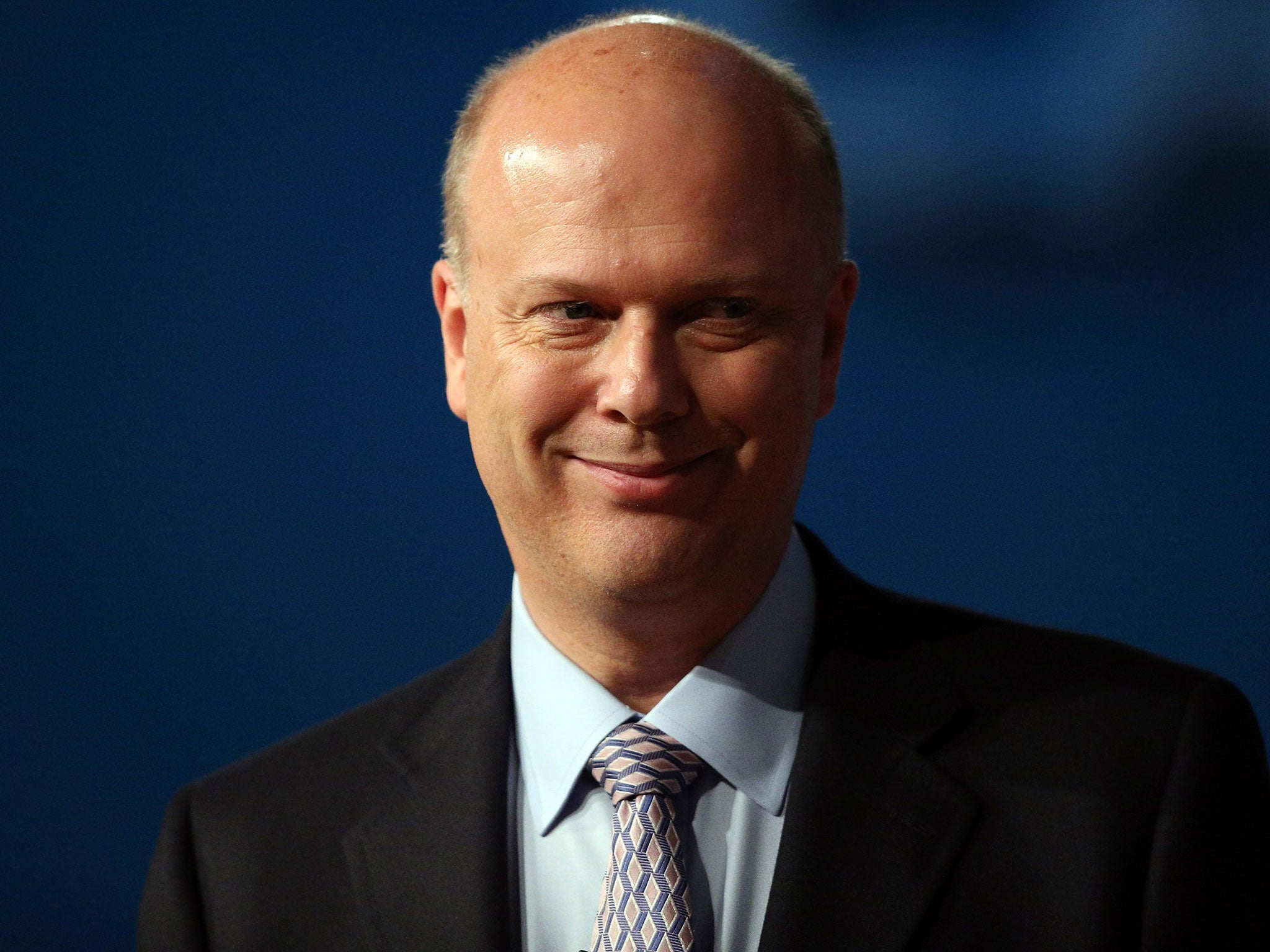It doesn’t take a lawyer to realise this attack on legal aid will have a deleterious effect on justice
Chris Grayling wants to shave £200m off the legal aid budget. Having made the decision to cut, the law of unintended consequences comes into play

Your support helps us to tell the story
From reproductive rights to climate change to Big Tech, The Independent is on the ground when the story is developing. Whether it's investigating the financials of Elon Musk's pro-Trump PAC or producing our latest documentary, 'The A Word', which shines a light on the American women fighting for reproductive rights, we know how important it is to parse out the facts from the messaging.
At such a critical moment in US history, we need reporters on the ground. Your donation allows us to keep sending journalists to speak to both sides of the story.
The Independent is trusted by Americans across the entire political spectrum. And unlike many other quality news outlets, we choose not to lock Americans out of our reporting and analysis with paywalls. We believe quality journalism should be available to everyone, paid for by those who can afford it.
Your support makes all the difference.Today, The Independent on Sunday revealed the extent of misgivings around Chris Grayling’s proposals to shave £200m off the country’s legal aid budget. Critics – top judges among them – fear Government plans to stop paying solicitors for the legal aid work they do, and instead give them a fixed fee for each case they represent, may destroy England’s 800-year-old tradition of fair and open access to justice for all. Of all the special interest groups expressing fury at the impact of Government cutbacks, there is one profession unlikely to attract public sympathy in austerity Britain: m’learned friends.
So should we dismiss their protestations about the Government’s reforms as special pleading from a self-interested group? Well, actually, no. Because their concerns at Mr Grayling’s proposals are shared by others – like the Magistrates Association – who don’t have a vested interest and are equally fearful of the consequences of his reforms.
Mr Grayling came from the simple proposition that he wanted to save about 20 per cent (or £200m) from the legal aid budget, which – he disingenuously claims – is one of the most expensive in the world. But having made the decision to cut, the law of unintended consequences comes into play.
Mr Grayling realises that such steep reductions in fees mean that the new system will be uneconomic for most small firms of lawyers. So under the plan, 1,600 accredited legal aid providers will be replaced with up to 400 contractors. The idea is that economies of scale will balance the cost reductions.
But what if one firm is better than another and gets more work than a rival firm with the same fixed costs? Well, says Mr Grayling, you remove the client’s right to choose. And what if one firm decides to increase its income by encouraging its clients to see the legal process through to an expensive trial? Easy, suggests Mr Grayling, pay them a fixed fee for work leading up to a court appearance and another fixed fee for all court work (with some exceptions) regardless of whether a client pleads guilty or not.
But it doesn’t take a lawyer to realise that these measures will have serious and deleterious effect on the administration of justice. In an attempt to save money it pitches the interests of clients against the lawyers who being paid to look after their interests. It removes all incentives for solicitors to offer an above-average service. And it ends continuity from representation: every lawyer will start with every client from scratch. Hardly efficient or just.
Concerned parties have eight weeks to make their representations to the Ministry of Justice. Then the Government will decide whether or not to listen.
The Tories are portraying their reforms as cracking down on fat-cat lawyers’ pay and people who misuse the legal aid system. But in truth it is much more complicated than that. Yes, legal aid is expensive but the question is: what price justice?
Join our commenting forum
Join thought-provoking conversations, follow other Independent readers and see their replies
Comments